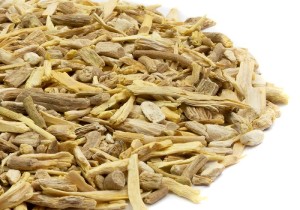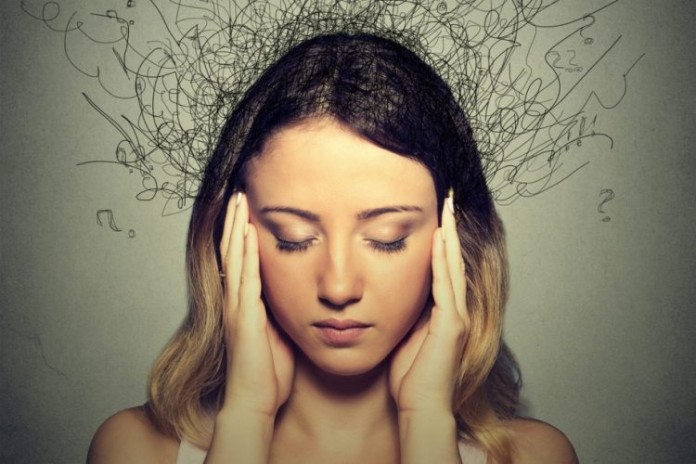As human beings, we all have worried about various things in our lives. Starting from worrying about getting good grades in school to finding a good college to get into, from finding a good job to finding a good partner to settle with, the list is endless. The fear and worry increase when we have our kids and we start worrying about making the right decisions for them constantly.
These are some of the bigger decisions of life and worrying about them to some extent is normal, but when this worry creates unending stress when we over-think every little situation and its outcome, it is identified as a condition called Anxiety.
The very definition of Anxiety says that it is a condition in which we spend too much mental energy on the unknown results of the future.
Anxiety: Vata Dosha in Ayurveda
In Ayurveda, anxiety is associated with the Vata dosha of your body. It occurs when excess Vata has accumulated in your ‘Mano Vaha Srota’ or the channel of mind. In simple words, you have a windy mind. Think of it this way, as per Ayurveda, the five elements permeate everything in this universe – fire, air, earth, water and space and when one of the elements is in an imbalance in the body, a dosha is created. Vata (earth and air) dosha is characterized by light, dry, cold, mobile and irregular qualities – just like the fall season.
You can see and imagine anxiety as a Vata dosha with this imagery. Imagine being a dry, lifeless leaf in the fall being blown away by the breeze or being a candle flame flickering for life on a windy night. Can you relate to being blown away in a breeze without any control on your thoughts when anxiety strikes? Don’t worry; there are millions of people in the world who are ridden with anxiety, whether mild or extreme.
Common Anxiety Disorders

Anxiety is implicated in various psychiatric disorders like depression and panic attacks. It can be divided into the following categories.
- Generalized Anxiety Disorder: People with GAD showcase ongoing stress and worry about various events and happening in their lives which they think are inappropriate or worrisome. Anxiety manifests in both physical and psychological symptoms.
- Obsessive-Compulsive Disorder: People with OCD tend to have bothersome and intrusive thoughts and impulses that cause stress (obsession). Whereas, compulsion is characterized by an urge to do something over and over again, for example, you might like washing your hands at least 3 times after touching a dirty object or surface. It could also be that you have to check a lock five times before you leave your home. These habits are not so obtrusive but we feel powerless as we continue acting like that repeatedly.
- Panic Disorder causes unwanted fear when there is no danger present. This is caused by constant over-thinking of a situation which leads you to think that only the worse would be the outcome. It is characterized by fast heartbeat, suddenly feeling weak or dizzy, nausea, pain in the chest and stomach, sweating or feeling cold and tingly feeling.
- Post-Traumatic Stress Disorder is a disorder in which the person is unable to recover after going through or witnessing a terrifying event in life. PTSD can last for weeks, months or years. The person with PTSD goes through an enhanced panic and stress when presented with the stimuli which caused the condition.

Manage Anxiety Naturally With These Ayurvedic Remedies
Cinnamon

Studies have shown that cinnamon has a calming effect on your mind. You can look at including cinnamon as candles or sleeping oil in your life. You can also take one-fourth tablespoon cinnamon mixed with half a tablespoon honey and chew it to calm your nerves.
Ashwagandha

Famous as a rejuvenating herb around the world, including Ashwagandha in your routine can do wonders for anxiety. You can add a scoop of Ashwagandha powder in your smoothie, a glass of warm milk or take it in a capsule form.
You can roast 2-tablespoons each of spices like cinnamon, ginger, cardamom, honey in one cup ghee and one-fourth cup Ashwagandha to create an ancient spiced ghee Ashwagandha recipe for managing anxiety. Consume one tablespoon of this mixture everything.
Ashwagandha contains a group of compounds called adaptogens that control a person’s stress response. A study showed that a group of 58-individuals that took Ashwagandha regularly for 8-weeks had a lesser quantity of cortisol, stress-hormone as compared to those who didn’t take Ashwagandha.
Shirodhara
Made from two ancient Sanskrit words Shiro (head) and Dhara (flow), Shirodhara is an ancient technique of pouring a constant flow of oil on the forehead to soothe the frayed nervous system. The constant application of oil stimulates blood circulation in the brain and the pituitary gland thus helping in getting rid of symptoms for anxiety, migraine and insomnia.
Aromatherapy
Certain fragrances have a soothing and calming effect on the Vata dosha. Try using basil, orange, cinnamon or lavender essential oils in your diffuser or in your bathing water to feel their calming effect.
Try Pranayam

This yogic technique of breathing from alternate nostrils helps in soothing the frayed nerves and brings focus and balance to your body. If you haven’t tried it yet, we suggest you include it as a daily activity in your routine.
Almond Milk
Soak 10 almonds at night and remove their skin in the morning before blending them with a glass of warm milk. Add a pinch of ginger, nutmeg and saffron and enjoy this drink sip by sip for a calming effect.
Relaxing Bath
Bathing can be a ritual that can calm your anxious nerves. Add a few teaspoons of ginger powder with baking soda to your bubble bath and soak in for 10-15 minutes. You can add music or read a book in the bath to distract your mind into de-stressing.
Ritualize Your Eating Schedule
To pacify your Vata dosha which is dry and cold, Ayurveda suggests evoking the opposite in your life to bring back the balance. Thus, you must increase warm, moist foods in your diet. You can include soups, dairy products, hot cereals, pasta and baked items in your diet. Avoid caffeine, nicotine and alcohol as these can be over-stimulating.
If you have your routine or remedy that helps you manage your anxiety, share away with us in the comment box!


